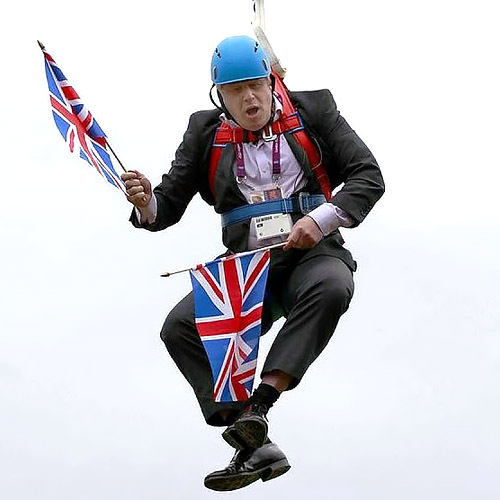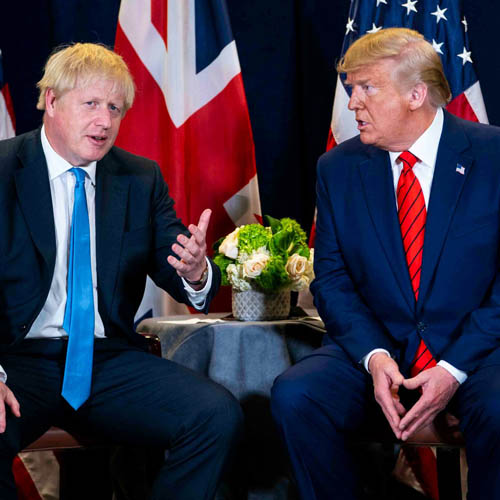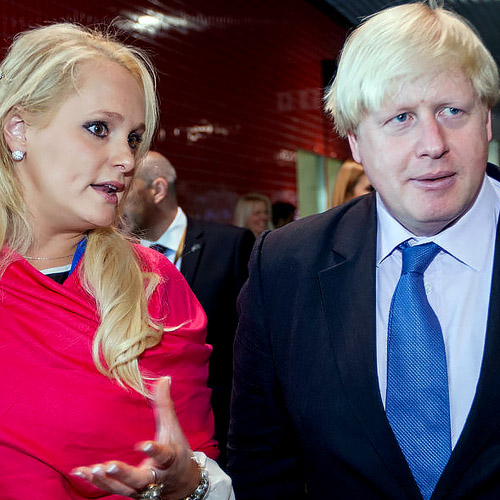The State We’re In…
The UK is arguably in its worst condition since World War 2. Most of the current problems were caused by the previous and current Conservative governments who have suffered from inadequate and dishonest leadership, and many sub-standard senior ministers. In my long lifetime, I cannot remember a a worse ruling class. So I decided to carry out some research into several ministers and a senior advisor. The social and economic divide has never been wider. The threat to life never greater, especially if you’re sick or aged. Higher and further education has never been as expensive, schooling has never been so underfunded. The justice system and policing is struggling and increasingly ineffectual. As a country we are becoming more isolated from our European neighbours, both culturally and economically. Housing has never been more expensive and unattainable, especially for the younger generation. The gap between earnings and costs has meant record numbers of the population are seeking state income support and charity food banks. The government handling of the Covid-19 pandemic has verged on the criminally inept and has cost many thousands of lives.
We are in a terrible state and it will get worse. Here’s part of the reason…
Boris Johnson - The Prime Minister
John Major, was annoyed by Johnson and spent much time attempting to refute what he said. Johnson’s articles exacerbated tensions between the Conservative Party’s Eurosceptic and Europhile factions, tensions which were widely viewed as contributing to the party’s defeat in the 1997 general election. As a result, Johnson earned the mistrust of many party members. His writings were also a key influence on the emergence of the EU-opposing UK Independence Party (UKIP) in the early 1990s. The proprietor of the Telegraph at the time, Conrad Black, said Johnson “was such an effective correspondent for us in Brussels that he greatly influenced British opinion on this country’s relations with Europe.”
Scandal erupted in June 1995 when a recording of a 1990 telephone conversation between Johnson and his friend Darius Guppy was made public. In the conversation, Guppy said that his criminal activities involving insurance fraud were being investigated by News of the World journalist Stuart Collier, and he asked Johnson to provide him with Collier’s private address, seeking to have the latter beaten to the extent of “a couple of black eyes and a cracked rib or something like that.” Johnson agreed to supply the information, although he expressed concern that he would be associated with the attack. When the phone conversation was published in 1995, Johnson stated that ultimately he had not obliged Guppy’s request. Hastings reprimanded Johnson but did not dismiss him.
In November 2004, tabloids revealed that since 2000 Johnson had been having an affair with Spectator columnist Petronella Wyatt, resulting in two terminated pregnancies. Johnson initially called the claims “piffle”. After the allegations were proven, Howard asked Johnson to resign as vice-chairman and shadow arts minister for publicly lying; when Johnson refused, Howard dismissed him from those positions. The scandal was satirised by The Spectator’s theatre critics Toby Young and Lloyd Evans in a play, Who’s the Daddy?, performed at Islington’s King’s Head Theatre in July 2005.
In April 2006, the News of the World alleged that Johnson was having an affair with the journalist Anna Fazackerley; the pair did not comment, and shortly afterwards Johnson began employing Fazackerley. That month, he attracted further public attention for rugby-tackling former footballer Maurizio Gaudino in a charity football match. In September 2006, Papua New Guinea’s High Commission protested after he compared the Conservatives’ frequently changing leadership to cannibalism in Papua New Guinea.
In 2005, The Spectator’s new chief executive, Andrew Neil, dismissed Johnson as editor. To make up for this financial loss, Johnson negotiated with The Daily Telegraph to raise his annual fee from £200,000 to £250,000, averaging at £5,000 per column, each of which took up around an hour-and-a-half of his time. He presented a popular history television show, The Dream of Rome, for production company Tiger Aspect; the show was broadcast in January 2006, and a book followed in February. Through his own production company, he produced a sequel, After Rome, focusing on early Islamic history. As a result of his various activities, in 2007 he earned £540,000, making him the UK’s third-highest-earning MP that year.
During his first administration [as london mayor], Johnson was embroiled in several personal scandals. After moving to a new house in Islington, he built a shed on his balcony without obtaining planning permission; after neighbours complained, he dismantled the shed. The press also accused him of having an affair with Helen Macintyre and of fathering her child, allegations that he did not deny. Controversy was generated when Johnson was accused of warning the MP Damian Green that police were planning to arrest him; Johnson denied the claims and did not face criminal charges under the Criminal Justice Act. He was accused of cronyism, in particular for appointing Veronica Wadley, a former Evening Standard editor who had supported him, as the chair of London’s Arts Council when she was widely regarded as not being the best candidate for the position. He was caught up in the parliamentary expenses scandal and accused of excessive personal spending on taxi journeys. His deputy mayor Ian Clement was found to have misused a City Hall credit card, resulting in his resignation.
Johnson had a close friendship with American technology entrepreneur, former DJ and model Jennifer Arcuri, with The Sunday Times describing him as a regular visitor to her flat, and implying they were in a sexual relationship. Innotech, her company, was awarded £10,000 from a mayoral fund in 2013, followed the next year by Arcuri being awarded £15,000 from a government programme. Johnson intervened to allow her onto three trade mission trips. The Sunday Times said in September 2019 that Johnson failed to declare his personal relationship as a conflict of interest. Later that month, the Greater London Authority referred Johnson and his actions in the matter to the Independent Office for Police Conduct (IOPC) “so it can assess whether or not it is necessary to investigate the former mayor of London for the criminal offence of misconduct in public office.” The IOPC was involved because the Mayor is also London’s police and crime commissioner. The London Assembly commenced its own investigation, but paused it at the IOPC’s request to avoid overlap. On 9 November 2019 it was revealed that the IOPC, which had been due to publish a report on its investigation, had decided to do so after the general election of 12 December. The IOPC issued its report in May 2020, concluding that, although there was no basis for any criminal charge, there was evidence that decisions by officials had been influenced by the close relationship between Johnson and Arcuri. The report also found that Johnson should have declared an interest concerning Arcuri and that his failure to do this could have breached the London Assembly’s code of conduct. On behalf of the London Assembly, the chair of its Greater London Authority Oversight Committee said that the committee would now resume its own investigation.
In February 2016, Johnson endorsed Vote Leave in the “Out” campaign for the 2016 United Kingdom European Union membership referendum. He called Cameron’s warnings about leaving “greatly over exaggerated”. Following this announcement, which was interpreted by financial markets as making Brexit more probable, the pound sterling slumped by nearly 2% against the US dollar, reaching its lowest level since March 2009.
Johnson supported Vote Leave’s statement that the government was committed to Turkish accession to the EU at the earliest possible opportunity, contradicting the Britain Stronger in Europe campaign’s view that Turkey “is not an issue in this referendum and it shouldn’t be”. Vote Leave was accused of implying that 80 million Turks would come to the UK if it stayed in the EU. When interviewed in January 2019, he said he had not mentioned Turkey during the campaign. On 22 June 2016, Johnson declared that 23 June could be “Britain’s independence day” in a televised debate in front of a 6,000-member audience at Wembley Arena. David Cameron, British prime minister at the time, specifically addressed Johnson’s claim, publicly stating, “the idea that our country isn’t independent is nonsense. This whole debate demonstrates our sovereignty.”
Following the victory of the “Leave” campaign, Cameron resigned as Conservative leader and prime minister. Johnson was widely regarded as the front-runner to succeed him. Johnson announced he would not stand in the Conservative leadership election. Shortly before, Michael Gove, hitherto a Johnson ally, concluded that Johnson “cannot provide the leadership or build the team for the task ahead.” The Telegraph called Gove’s comments “the most spectacular political assassination in a generation.”
In November 2016, Johnson told the Foreign Affairs Select Committee that Nazanin Zaghari-Ratcliffe—a British-Iranian dual citizen serving a five-year prison sentence in Iran after being arrested for training citizen journalists and bloggers in a BBC World Service Trust project—had been “simply teaching people journalism.” Zaghari-Ratcliffe had said that her visit had been made simply for her daughter to meet her grandparents. Facing criticism, Johnson stated he had been misquoted and that nothing he said had justified Zaghari-Ratcliffe’s sentence.
Johnson described the Gülen movement as a “cult” and supported Turkey’s post-coup purges. He said that Turkey’s coup attempt “was deeply violent, deeply anti-democratic, deeply sinister and it was totally right that it was crushed.”
Johnson said that US recognition of Jerusalem as capital of Israel is a “moment of opportunity” for peace. In June 2018, Johnson accused the UNHRC of focusing disproportionately on the Israeli–Palestinian conflict and Israel’s occupation of the Palestinian territories.
During trips to the United States as Foreign Secretary, Johnson had repeated meetings with Trump adviser and speechwriter Stephen Miller, which were held off White House grounds and kept quiet from May. During the meetings, Miller and Johnson “swapped speech-writing ideas and tips.”
He [Johnson] agreed that the burqa is oppressive and that “it is weird and bullying to expect women to cover their faces” and also commented that he could “find no scriptural authority for the practice in the Koran” and that it seemed “absolutely ridiculous that people should choose to go around looking like letter boxes” and that “if a female student turned up at school or at a university lecture looking like a bank robber” that he “should feel fully entitled – like Jack Straw – to ask her to remove it so that [he] could talk to her properly.” Johnson also referred to the burqa as “wacko women’s gear”.The Muslim Council of Britain (MCM) accused Johnson of “pandering to the far right”, while Conservative peer Baroness Warsi accused him of dog-whistle politics. Several senior Conservatives, including May, called on Johnson to apologise. Others, such as MP Nadine Dorries, argued that his comments did not go far enough and that face veils should be banned.
Johnson received more than £500,000 in political donations between May and July in 2019.[442] He received £100,000 from Jon Moynihan, chairman of PA Consulting Group, £28,000 from Anthony Bamford, chairman of JCB, £20,000 from investment firm Killik & Co, £10,000 from businessman Mohamed Amersi, and £10,000 from the wife of the Syrian-Saudi Arabian arms deal fixer Wafic Saïd.
On 19 July, Reuters reported that Johnson, as well as his political allies, had been actively supported by the former Russian oil tycoon Alexander Temerko, who became a major donor to the Conservative Party after he fled Russia in 2004 to evade criminal charges. Temerko said he was on friendly first-name terms with Johnson. Temerko reportedly had close ties to the Russian government but Kremlin spokesman Dmitry Peskov said Temerko “has no connection to the Kremlin or the Russian authorities.”
|
|

|

New York Dolls |
LATEST GALLERY IMAGES

The Peace Dividend? 
Crime Scenes |
|
|




